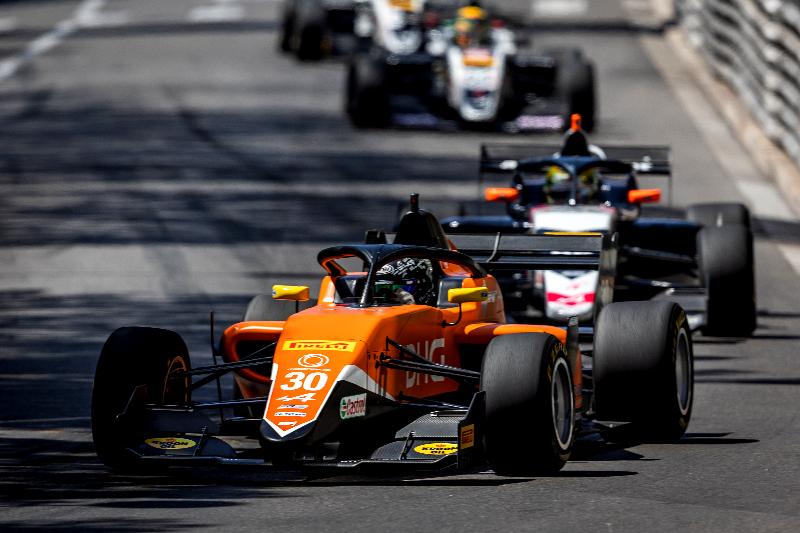
Photo: Diederik van der Laan / DPPA
Running the 2024 Macau GP for FRegional cars has the support of teams, but some points need addressing
The Macau Grand Prix is possibly the most famous and prestigious junior single-seater race in the world, and from 1983 to 2019 (then again in 2023) ran using the prevailing Formula 3 regulations. The FIA even handed it F3 World Cup status from 2016 onwards. From 2020 to ’22 it ran as a round of the Chinese Formula 4 championship, but that was only due to travel restrictions imposed as a result of the COVID-19 pandemic that prevented international entrants making their way to Macau.
Speeds have increased significantly since the introduction of the current generation of F3 cars in 2019, with Luke Browning’s pole position time last year being 4.475 seconds faster than what Dan Ticktum set for pole in 2018.
“F3 was getting very, very fast; really fast,” the FIA Single-Seater Commission president Emanuele Pirro tells Formula Scout.
He wholeheartedly supports the decision (made before he began in his current role) to take the grand prix away from F3 this year and instead run a race on the Guia Circuit for Formula Regional cars (the fourth tier of single-seaters) with the title.
“[FRegional is] let’s say, the natural step down, a little bit like it was from Formula [Pacific] to F3 in 1983 and I think it fits very well. It is the perfect budget package, has got enough downforce to enjoy the speed and the fast corners but is not super fast.”
Indeed, he believes, the move was “probably the price to pay to keep a circuit like this alive”.
Pirro raced in the Macau GP four times, from 1984 to 1987, taking a best finish of fourth in 1986 for Eddie Jordan Racing.
“I believe a lot in in history and tradition. I think Macau’s a very good trampoline launch for a driver,” he adds. “This year it will be year one for FRegional. Hopefully it will be year one of a long series. Let us enjoy year one to start with.”
Wishing former WSR driver and five-time Le Mans winner Emanuele Pirro a very happy birthday. 🎂
Emanuele raced for us at the 1984 Macau GP in this Ralt-Toyota. pic.twitter.com/d2ho7Awrl0— WSR (@Official_WSR) January 12, 2022
The current FIA F3 car is a spec machine used exclusively in one championship, and will make its final race appearance at Monza in two weeks’ time. It will be retired after post-season testing, and its Dallara-designed successor enters use next year.
As a result, Formula Scout understands that F3 itself had reservations about continuing with the Macau event, although Pirro confirms that “already to go back to F3 after the break required a lot of consideration and thoughts; it was not a straightforward green light”.
Pirro hopes that the move will also recreate the original “world cup” atmosphere, with drivers from multiple championships coming together for a one-off event.
This is a key distinction as FRegional is an actual formula, with four different chassis in use and four engine suppliers in the category, although for Macau all entrants will use the same chassis-engine combination.
After F3 became spec in 2019, the World Cup-awarding Macau GP was in effect just an extra round of the FIA’s championship, albeit with some new faces in the cockpits.
The concept of a non-championship event appeals to Pirro: “When you have a race outside the championship, if you somehow fail in the championship for whatever reason, you have another go. So I think in this respect also, Macau can be valuable.”
Since the European championship lost its Monaco round in 2023, FRegional has not been a level where drivers can learn the art of driving on a street circuit. The skill needed to keep the car between the walls has been brought into focus by the conundrum of track limit abuse on ever safer permanent tracks.
Though Pirro is very much a purist, whose values hark back to what seems a different age, he is driven by a passion for the sport and its unique challenges.
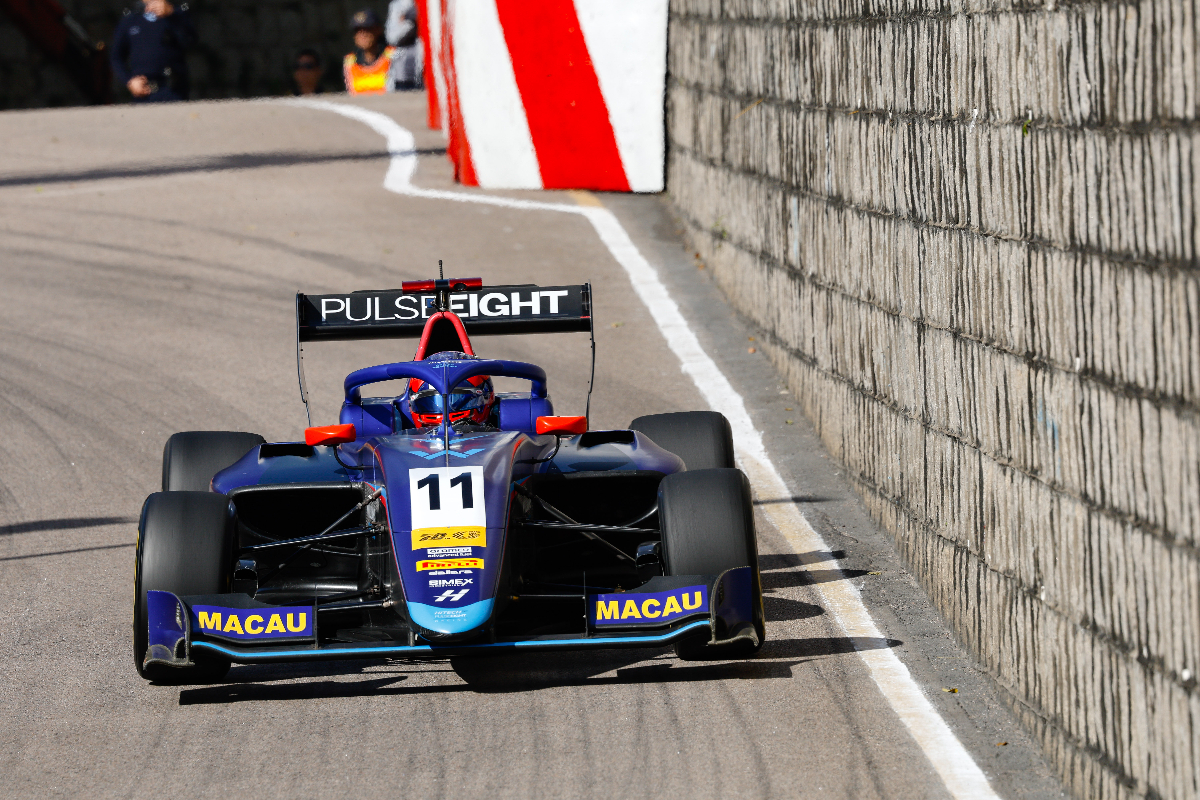
Photo: Macau GP Organising Committee
“The drivers of today sometimes miss the joy and the privilege of driving on some spectacular circuits or corners of the past, which have been modified or cancelled [for] safety reasons. Traditional street circuits, like Macau or Monaco, are an invaluable asset for motorsport because driving between walls, where putting a foot wrong is very expensive and where if you crash, even in free practice, your whole weekend is jeopardised, gives another value to a given performance.”
Pirro then quotes Stirling Moss, a three-time Monaco Grand Prix winner: “’The difficulties of motorsport today and yesterday are probably similar. I can compare it to walking on a tightrope, but in my time, it was like walking across the Grand Canyon and now it’s walking over a safety net. The difficulties are probably similar, but the reward is definitely less.’”
On many of the FIA Grade 1 tracks frequented by FRegional, you need to get the perfect line on every corner to be at the front. But in Macau, “a driver will never do a perfect lap, [so] when you do something close to good, it’s immensely rewarding”.
“So really as a as a driver, I would do the best I could to keep a circuit like this alive,” Pirro reasons.
The Tatuus chassis and Autotecnica-built Alfa Romeo engine combination used in FRegional Middle East is what all of the 2024 Macau GP entrants will need to run, which will give the advantage to the teams with FRME experience.
Had it wanted to embrace spirit of the pre-2019 F3 World Cup, the FIA could have opened the race up to all homologated FRegional machinery, possibly with a Balance of Performance applied to maintain equality, but Pirro is scpetical.
He is not aware of any such discussion having taken place, even before he took over the role, and is not a fan himself of any sort of technical equalisation measures.
“I have read all the dossiers, but this would have been a conversation prior to going into the dossiers,” he explains. “Personally, I think [equalisation] will never work. Even in the World Endurance Championship, the BOP is done in a very scientific and very good way. Yet very few people are happy, apart from the guy who wins, who says ‘it’s just about fair’.”
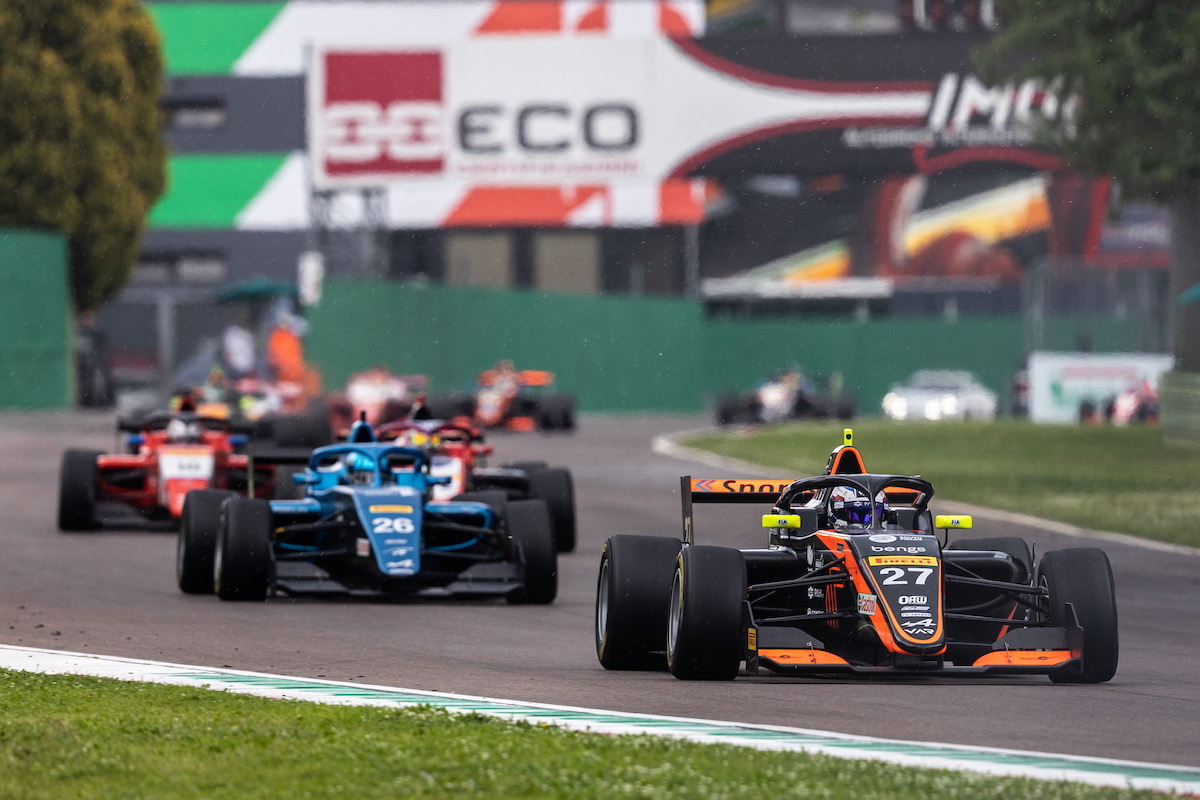
Photo: FRECA
Technical regulations for Macau haven’t been published, but a push-to-pass system (as seen in FRegional Europe with the same Tatuus car but a Renault engine) is unlikely to be used, but also because Pirro is a strong opponent of overtaking aids.
“For me, the downside at Macau is that it gives so much tow. Forget about the P2P, because even the length of this straight for me in this respect would be [too long]. This is the magic of Macau, super fast and a slow bit. This is why Macau is unique and why I love it so much.”
The weekend’s sporting regulations are out however, and entry priority will be given to “those drivers having achieved the highest positions in the 2024 FRegional championships”. But Pirro is hopeful of keeping the event tradition of drivers stepping up and down the ladder to get a taste of Macau, although drivers who have competed in more than three Formula 2 events will be ineligible for this year’s race.
“Whenever there is a possibility to have drivers mixing up, I think it’s a very good thing. I would be in favour of that,” he says.
“I would really hope so because now motorsport is very popular. There are very many drivers in the junior formulas. You cannot afford to stay more than two years [at any level]. But if you if you repeat the championship, it doesn’t look very good for your career so [each] generation of drivers keeps stepping up together.”
FREC teams excited about Macau despite logistics concerns
Five FREC teams are on the 2024 Macau GP entry list, with Evans GP, currently supporting KIC Motorsport’s entry in FREC, heading to the Far East in its own right.

Photo: FRME
FRegional teams are in no doubt that Macau’s category switch is the right move, although many voiced concerns about the logistics involved, the difficulties in sourcing the required Alfa Romeo engines, and the timing of the event.
However, Trident team manager Luca Zerbini summed up the prevailing support when he said “FRegional is the right car for Macau, to be honest; it’s perfect”. However his own team will be absent, having reluctantly decided againt attempting an entry due to the logistical complications of taking his cars 9,230km, although “hopefully we will join in 2025”.
Prema, which will again carry the branding of the Theodore Racing outfit which was owned by the late Macau GP-organising Teddy Yip, will be looking for its fourth triumph on the city streets of the Far East.
“We have always been great supporters of Macau, it’s a historical race in our DNA,” team principal Rene Rosin told Formula Scout. “Going through the years, with the changing F3 landscape, we moved to the new F3 car, which was maybe a little too powerful for the type of track.”
“In terms of power, [FRegional is] adequate to the track and its characteristics. It’s similar to the previous F3 races that happened before we got there for the first time with the new car in 2019.”
Although team founder Angelo Rosin had run an entry as early as 1984, Prema first competed under its own name in 1988, and had to wait until 2011 to taste victory with Dani Juncadella. And Rosin Jr is one of many who sees the potential for the switch to FRegional to recreate the glory days.
“All the stars of F3 used to compete together. We will always be great supporters of the event, and if having Regional will bring the chance to have a ‘world cup’ vision like back in the day, we will be even more in favour,” he explained.
While it is too early to speculate on a driver line-up, the team has already been inundated with interested drivers.
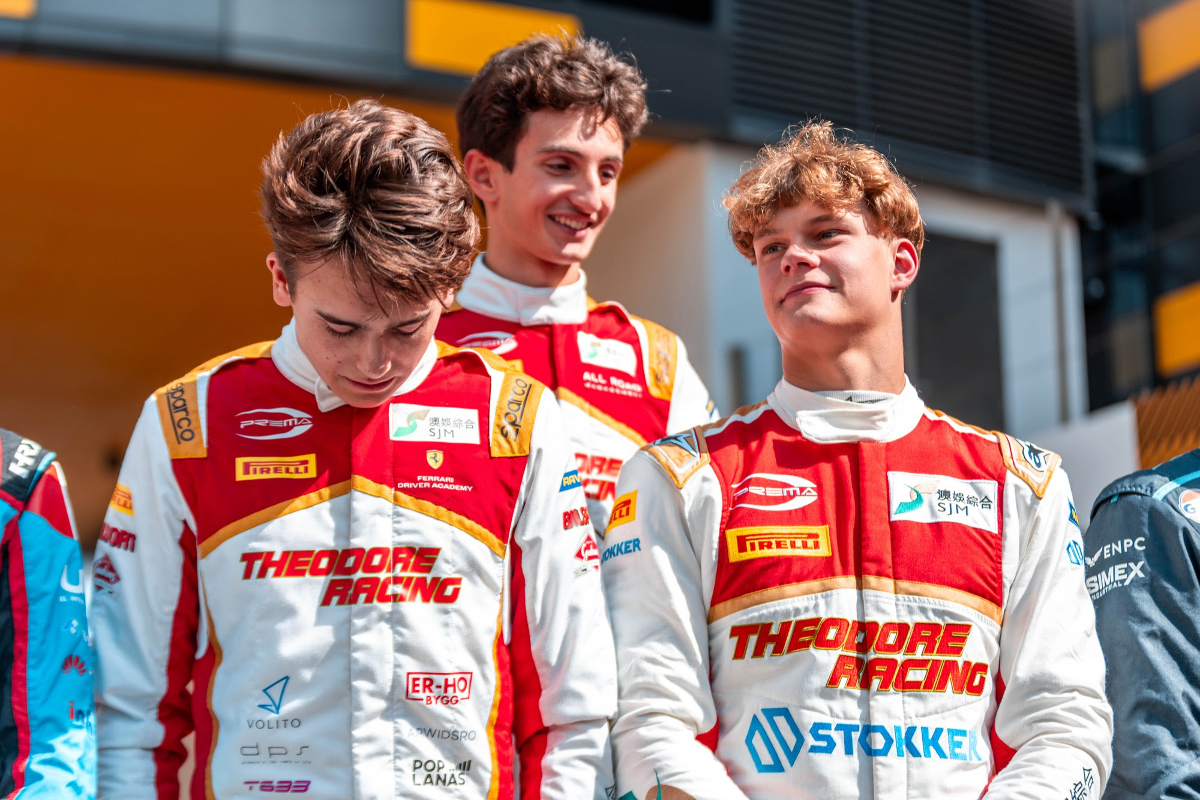
Photo: Prema
Prema’s main rival in Europe is R-ace GP, which is equally excited about racing in Macau.
“For sure we are happy,” said its team principal Thibaut de Merindol. “As racers, we love to go in Macau. We love to do street races.”
De Merindol also sees the move as a return to the years when Macau brought together top junior single-seater drivers and teams from around the world.
“It reminds me of the old time when it was the real F3, 20 years ago. We are looking forward to it and I think the car will suit the track well,” he said.
“I think it’s a very good opportunity for the FRegional championships in general. It will give bit more visibility and prestige to this [European] championship, which is a bit in the middle of F4 and F3. I think the championship is really good but just the name is in a ‘no man’s land’, so at least I think this will give good credibility and visibility overall to the championship.”
De Merindol is also expecting significant driver interest. “Even from F3. We have received the invitation, so we are selected but now it’s up to us to discuss with the drivers we are speaking with and to define what would be the best line-up.”
Sainteloc Racing’s managing director Morgan Caron sees the Macau GP as a “great opportunity to race on a street circuit”.
“Macau is part of the motorsport history,” Caron noted. “Big names won this race so to add it to the CV is not a bad move.”
His team may be new to Macau, and in only its second year in FRegional, but it hasn’t entered just to get experience or to make up the numbers: “Yes, it’s going to be exciting and challenging, but I think we have the capacity to beat all other teams, and we go to win, nothing else!”
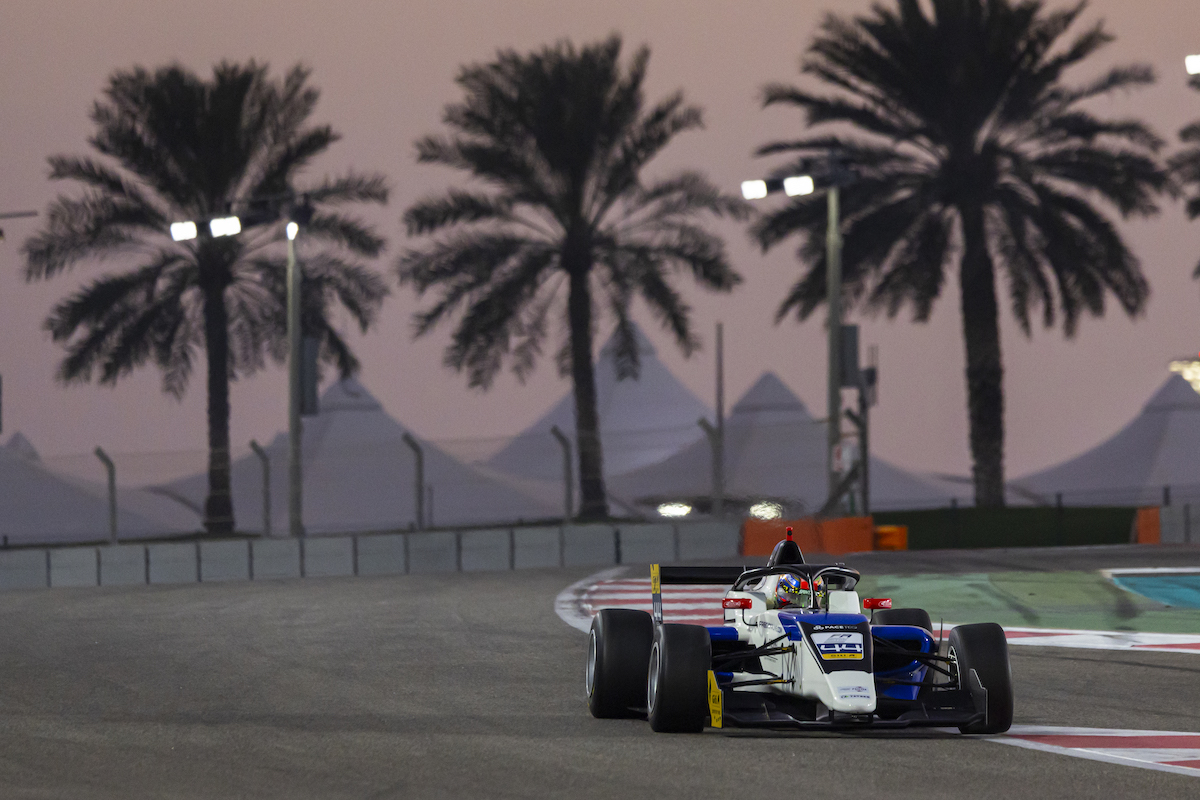
Photo: FRME
MP Motorsport, Prema, R-ace and Sainteloc have experience of the FRME package, while FREC rival ART Grand Prix does not. Its team manager Mathieu Zangarelli told Formula Scout that the team would hire cars from FRME promoter Top Speed.
The Autotecnica engine is also used by cars competing in Eurocup-3, where Sainteloc is also active.
Caron explained that the FIA is determined to ensure a level playing field. “From the information we have received from the FIA what they are doing is very good. All the teams must send their Alfa Romeo engines to Autotecnica before the race, because they want to put all the engines racing in Macau on the dyno to make sure they are all in the same performance window, which is good in terms of in performance and equity.”
So far, teams have been provided with limited technical details, leaving some questions as to “how it will work, whether we will have push-to-pass,” unanswered according to Caron.
Despite the overall enthusiasm, the logistical and financial complications put off top FREC teams such as Trident and Van Amersfoort Racing. The word in the that paddock was that the kit necessary to adapt existing cars to take the Alfa Romeo engine could cost €20,000-€30,000, a not inconsiderable outlay.
“It’s also the transport. If you want to do it with your own cars, I’ve heard that you need to pay your logistics yourself,” VAR’s team manager Danielle Geel pointed out, and also noted the grand prix’s November 14-17 date falls “in the period of our winter testing programme, so logistics-wise it’s a bit difficult”.
For Trident the considerations were the same, which as Zerbini said is a big shame. “Of course, everyone in junior single-seaters is a fan of Macau. It’s a race that everyone wants to do and us a team as well would really love to do that.”
“Logistically, was a little bit difficult, so at the end we had to take the decision not to do Macau. At the end of the day, we decided to keep the focus on the winter test.”
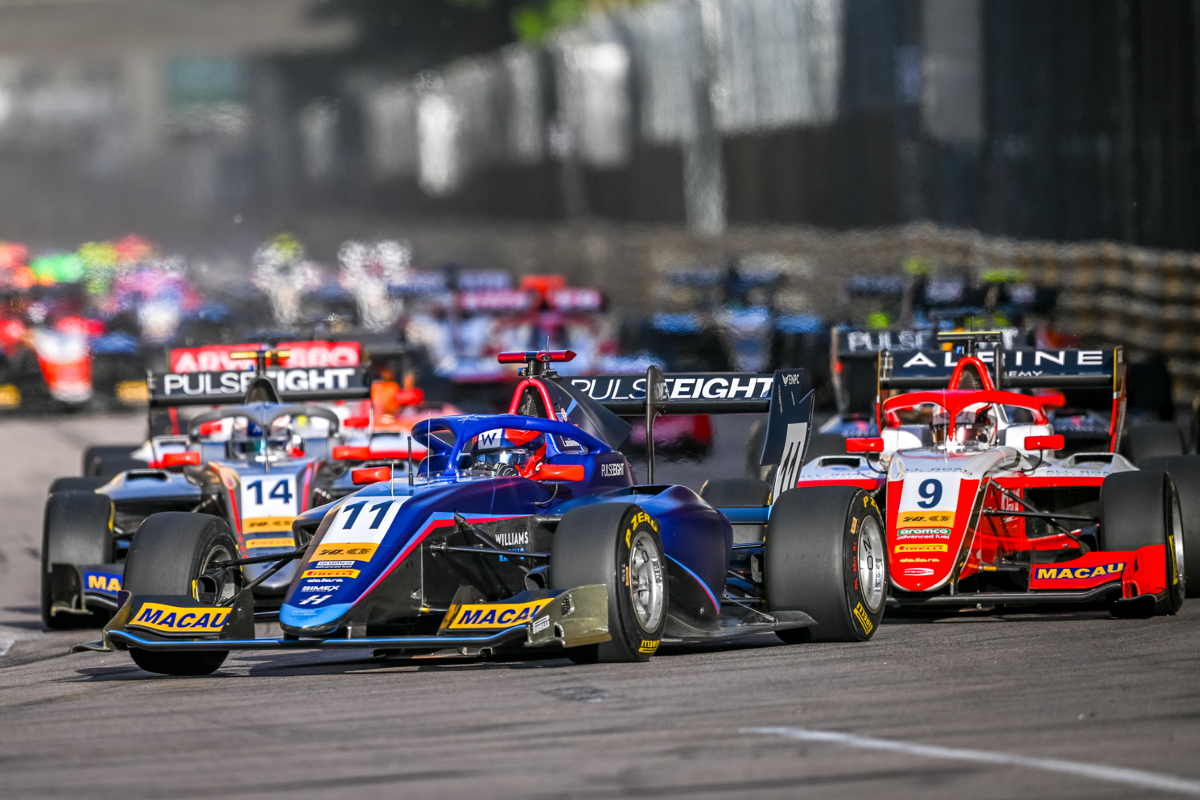
Photo: Macau GP Organising Committee
The availability of suitable engines was a further complication, and while Trident could have also rented cars from Top Speed “the problem is that then all the tools and everything we should have; it was a bit too complicated”.
G4 Racing did want to be on the Macau GP grid, but was unable to source engines in time.
“The installation kit is not a problem because Tatuus has availability, it is more about the engines. We are still working on that to try to make it happen. The negotiation is still ongoing,” said G4’s team manager to Adrian Munoz to Formula Scout last month, and alluded to a shortage of powerplants “because the base road car engine is not anymore in production and there are still a lot of championships using it, like Eurocup-3 and [FRME]”.
Munoz is convinced though that “the FRegional is the ideal car” for the grand prix: “The current FIA F3 was already driving with less power because it’s really a very [high] performance car for that type of circuit [and] the F4 car used during COVID was too small.”
He also underlined the point that with Monaco no longer on FREC’s calendar, Macau is not just a new challenge for drivers and teams. “It will be interesting to see the car performance in an event like this because this is not a car used to doing street circuits.”